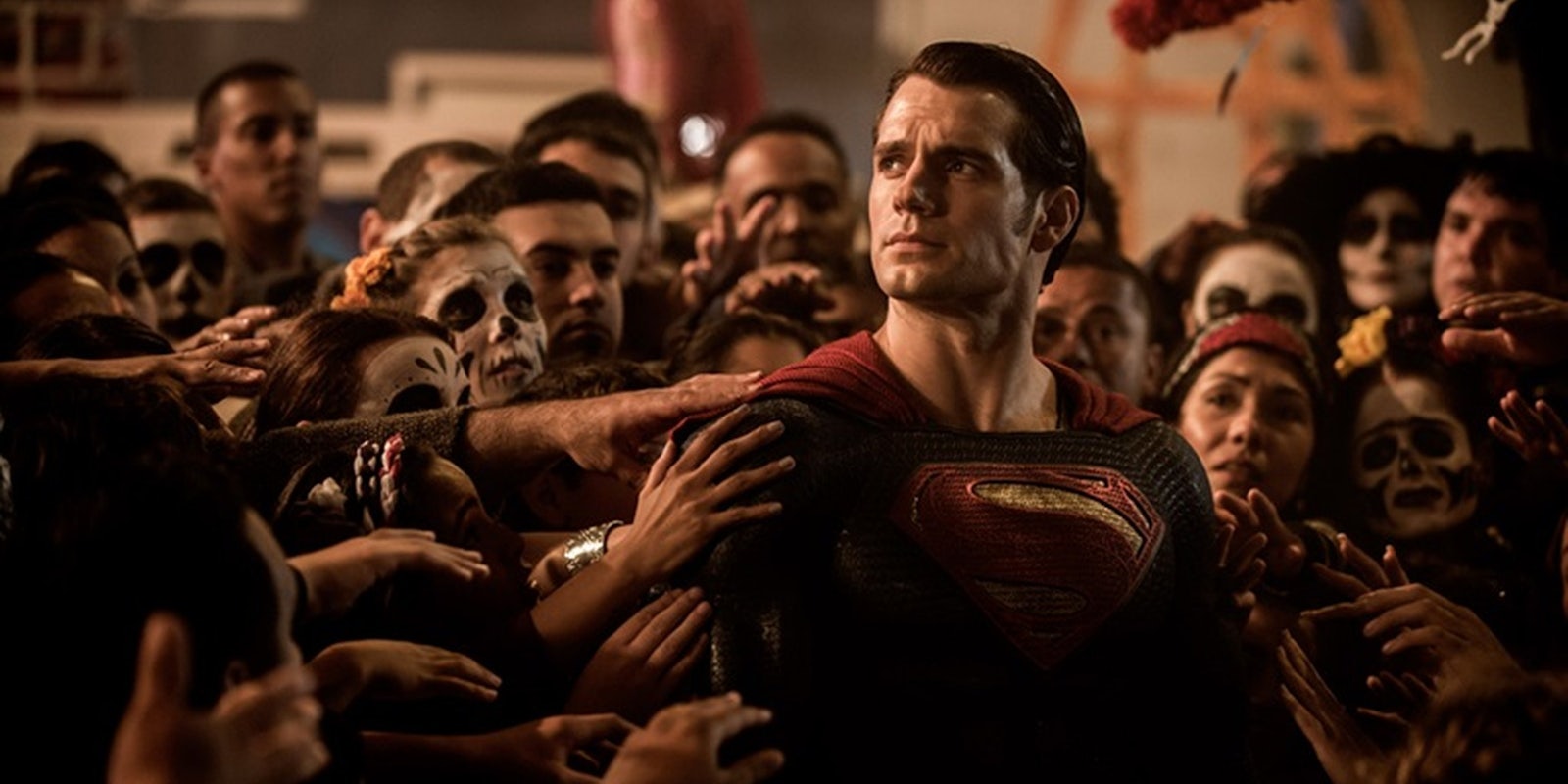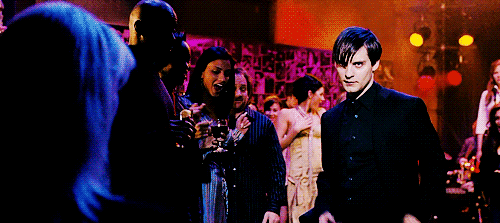The creators of Batman v Superman are in the strange position this week of receiving hellaciously terrible reviews while seeing their film earn tons of money.
While Warner Bros. executives celebrate their box-office success, the critical consensus is that it’s a total dumpster fire of a movie.
This divide, supported by the fact that many DC Comics fans enjoyed the film a great deal, has fueled a narrative of perceived critical bias against BvS. Instead of taking reviews at face value and simply agreeing to disagree, some fans are blaming the critical response on a combination of cultural elitism (“critics just hate fun, mainstream movies”) and conspiracy theories about Disney bribing people to pan a rival studio’s film. (Last year’s Fantastic Four, which commanded far less brand loyalty than Batman or Superman, received no such defense.)
Following the Zack Snyder film’s impressive $424 million box-office haul on opening weekend, Warner Bros. domestic distribution chief Jeff Goldstein released a statement encouraging the “critics versus audience” framing:
“Clearly, audiences have embraced it and we are already seeing repeat business. It’s just fun. Often, there’s a disconnect between critics and audiences. It doesn’t take itself seriously. It’s just an enjoyable afternoon at the movies.”
Given that BvS includes blatant 9/11 imagery and reimagines Batman as a sadistic mass murderer, we have to object to the idea that it’s “just fun” and “doesn’t take itself seriously.”
That being said, it’s not exactly unusual for poorly reviewed movies to do well at the box office.
The widely panned Transformers films all rate between A and B+ on the audience response aggregator Cinemascore (a popular citation among defenders of Batman v Superman, which scored a B) and are consistently lucrative.
(Incidentally, Cinemascore also gave a B rating to Elektra, Catwoman, Fantastic Four: Rise of the Silver Surfer, and Green Lantern. Spider-Man 3, the one where Tobey Maguire gets an emo makeover and dances down the street, received a B+. This is not the most impressive of peer groups.)
When Variety asked, in reference to Batman v Superman, “Do critics matter at the box office?“, the obvious answer was no—not for big-budget franchises, anyway.
Reviews matter a great deal to small indie movies with minimal name recognition, but Warner Bros. has literally spent years promoting Batman v Superman. From a financial standpoint, it would be actively difficult to turn this movie into a flop. Plus, of course, no film critic in history has embarked on their career with the aim of swinging the needle of box-office results.
Trailers work. Publicity tours work. Spending millions of dollars on advertising works. It helps that the film’s target audience already has a lifelong affection for Batman and Superman; that’s the kind of brand loyalty rivaled only by franchises like Star Wars, Harry Potter, and James Bond. Plus, superhero movies are very popular, and there was no direct competition for the action blockbuster audience this weekend.
Obviously, there’s nothing wrong with loving Batman v Superman. Plenty of “bad” movies have made a tremendous impact on the lives of their fans, from the Twilight franchise to the Star Wars prequels. It’s hard to agree with the line being drawn between the new DC Comics film’s box-office success and a victory for DC Comics fans in general.
For every vocal fan defending BvS from critics on Twitter, there are others who feel genuinely hurt by Zack Snyder‘s angry, sneering vision of Superman, or who had to take their children out of the theater when Batman began to torture and murder his foes. Buoyed by passionate fans and an impressive marketing campaign, Zack Snyder’s Justice League is the hero team we’re paying to see. But are these really the heroes we need or deserve?
Photo via Man of Steel/Warner Bros.



